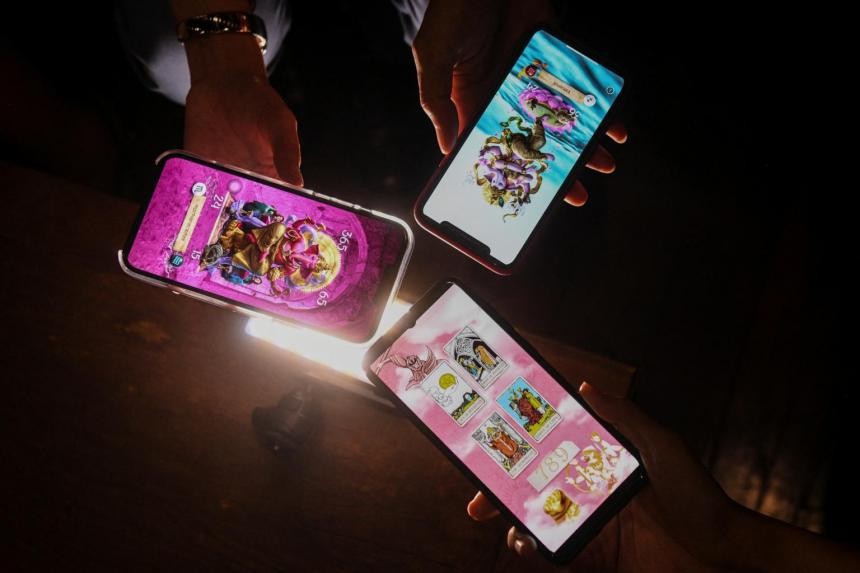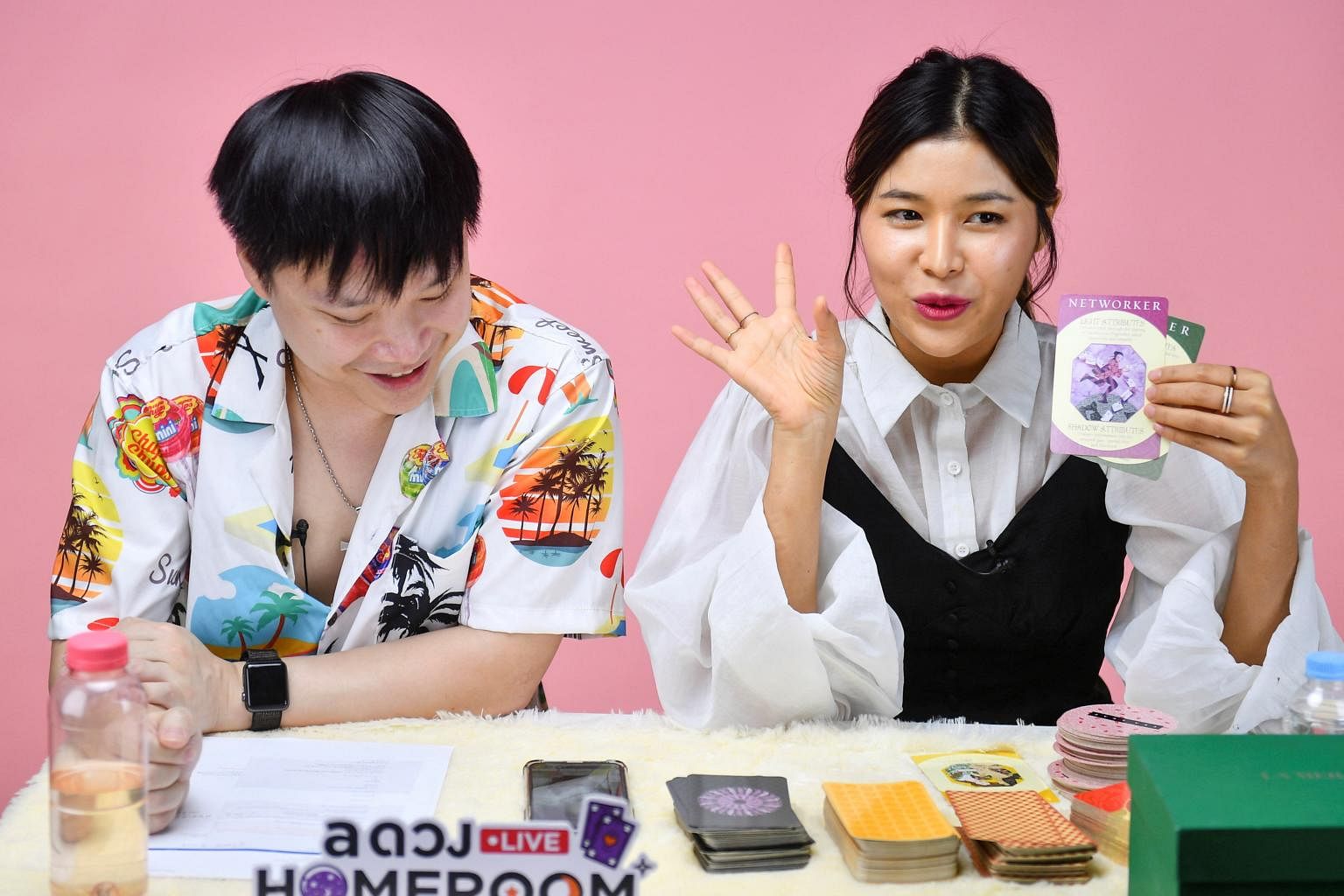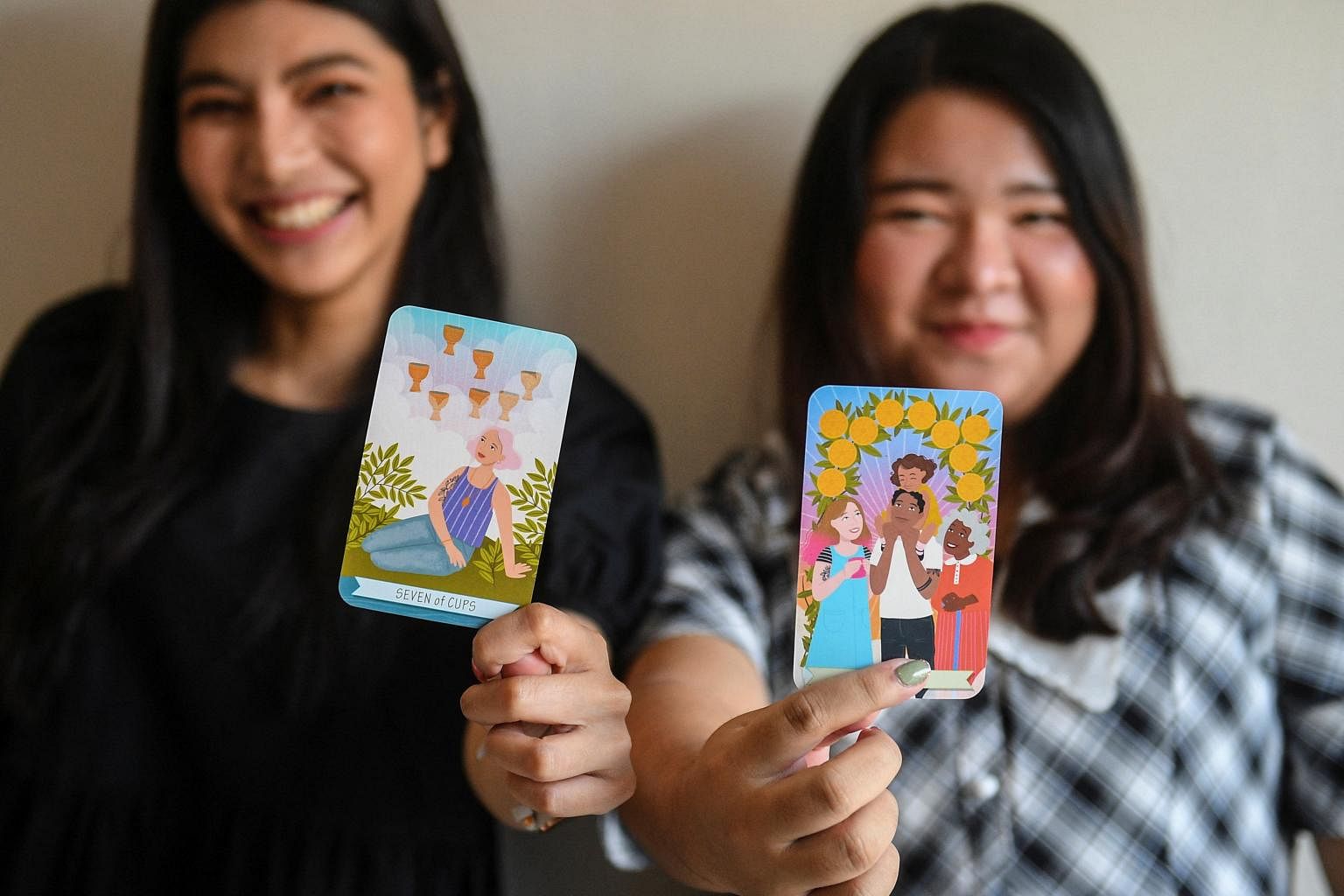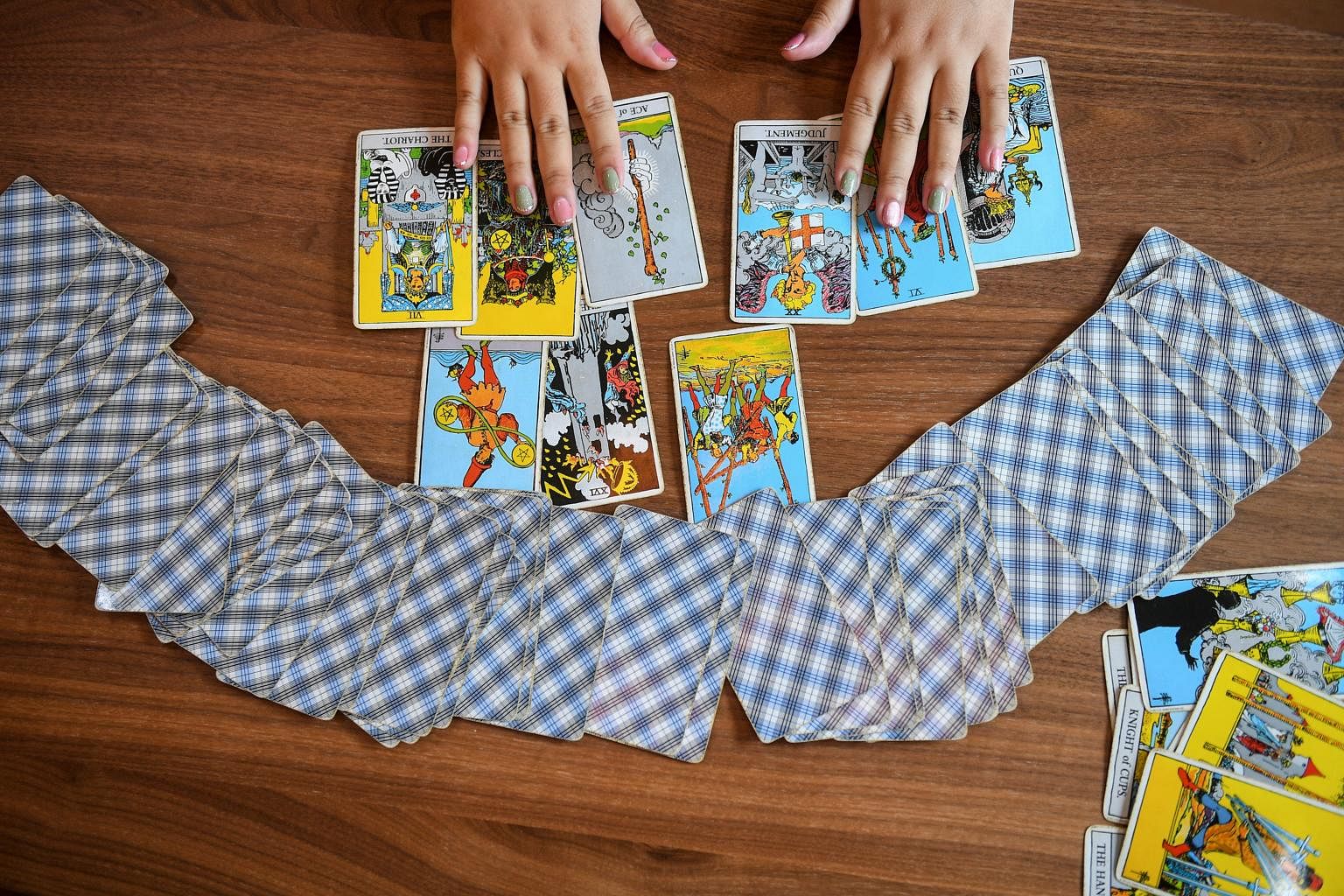From Covid-19 to crypto-amulets: Young Thais seek fortune-telling upgrades


BANGKOK - Thai masters student Dhidhaj Sumedhsvast didn't believe in fortune-telling or supernatural powers until the coronavirus pandemic started two years ago.
Now, he regularly seeks the advice of fortune-tellers, wears lucky amulets, and has pictures of tarot cards as wallpaper on his phone.
"The pandemic has brought so many uncertainties that make us feel anxious," said Mr Dhidhaj, 30, who started by praying to Kubera, the God of Wealth in Hindu mythology and a Buddhist deity, for protection against the economic fallout from the pandemic.
"When I started doing this, I felt safe. While others were affected by Covid and lost their jobs or income, I wasn't. So I believe in it more and more."
Like Mr Dhidhaj, many in Thailand's anxiety-gripped young demographic have started to embrace fortune-telling and other forms of divination.
[[nid:482098]]
The pandemic has moved Thailand's distinct brand of divination from streets and storefronts to youth-oriented social media, helping fortune-tellers to reach a bigger audience.
"With the world like this, people need spiritual anchors,"said Ms Pimchat Viboonthaninkul, a 26-year-old fortune-teller who works exclusively online and who co-founded Mootae World that started the tarot card phone wallpaper trend last year.
Thai culture has long been steeped in astrology and forms of divination such as palm reading, tarot cards or numerology.
An estimated 78 per cent of the Thai population believes in the supernatural according to a 2021 study by Mahidol University's College of Management (CMMU).
From consulting with Feng Shui masters to wearing monk-blessed amulets, Thai traditions all sit comfortably within the dominant Buddhist religion.
Thailand's largely informal fortune-telling industry is estimated to attract around 5 billion baht (S$204 million) of spending per year since the pandemic started, up from around 4 billion baht, according to A Duang, a startup whose fortune-telling application has grown to nearly half a million users, mostly aged 18-30.
The app offers daily livestreams by some of its 7,000 fortune-tellers, during which users can spend 10 to 100 baht for quick insights. It also offers private one-on-one card reading sessions at higher rates.

A Duang managing director Kittikhun Yodrak said average per-user spending has surged fivefold to 500 baht monthly from its 2019 pre-pandemic launch.
The trend reflects a "breaking point" in stress levels that pushes many to seek quick answers from someone else rather than from within themselves, said Ms Jomkhwan Luenglue, a board member of the Thai Psychological Association.
"It's mental first-aid," said Ms Jomkhwan. "But it could jeopardise your ability to make decisions for yourself in the long term."
New digital products have also boomed.
Mobile phone wallpaper maker Mootae World has made tens of thousands of images - each with different tarot cards and symbols - for clients' phone screens.
Priced at 249 baht, each is custom-made according to the clients' unique star positions at birth, plus their deepest wishes, whether financial or romantic.

Traditional-looking Buddhist amulets - often images of guru monks or the Buddha made from bronze, brass or gold - are also available as non-fungible tokens (NFTs).
Thai project Crypto Amulets has sold about 3,000 such NFTs since launching in 2021, each for about 2,000 baht on the Ethereum and Solana blockchains.
Each digital amulet is printed on paper first to be blessed by monks in Surin province, a huge market of Thailand's Buddhist amulet trade 435 km east of Bangkok.
"We used to wear physical amulets around our neck, but now we can carry NFT ones on our phones too," said Mr Ekkaphong Khemthong, who owns Crypto Amulets and also collects traditional amulets.

Mainstream business brands are recognising the new Thai psychic entrepreneurs as the keys to the growing market of young believers with disposable income.
Last month, Mootae World promoted Cigna Corp insurance packages to their followers, tapping into Chinese astrology's "unlucky year" belief that in each zodiac animal year, those born with the same animal sign incur the curse of Tai Sui, the God of Age.
"A new marketing trend has emerged. Trends are always changing, but supernatural belief is a constant in Thai society," said Ms Muratha Junyaworalug, head researcher of the CMMU study.
"All the brands want to tap into this market."